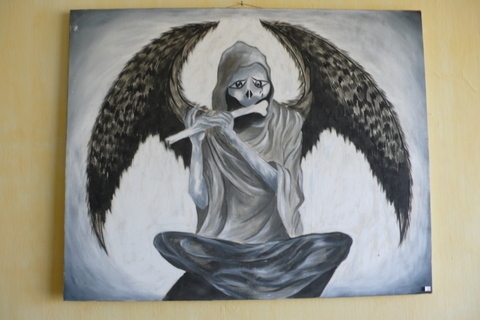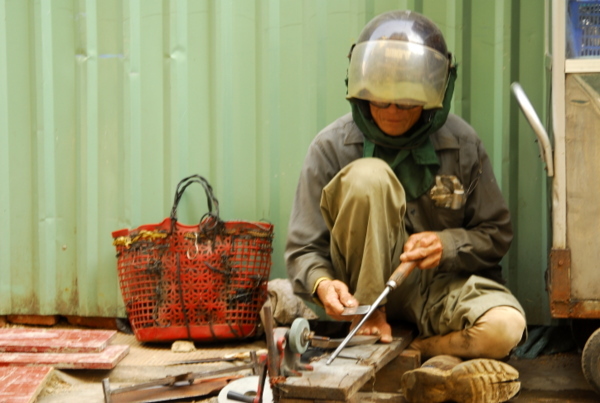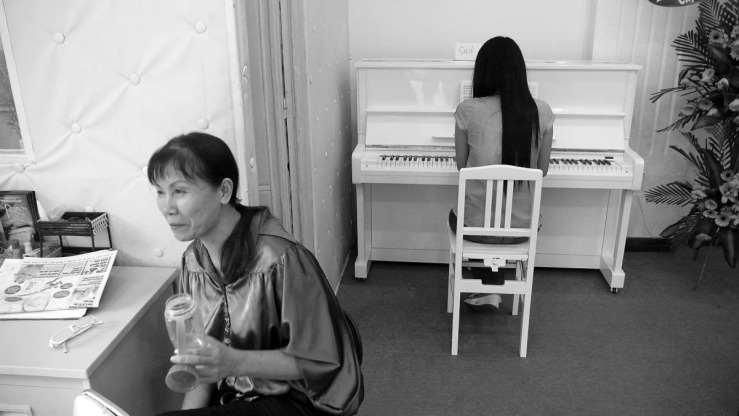Hanoi Memory
A shattered mirror reflected Pho’s fragmented identity.
Inside his cement cell Dave’s angry voice danced with stranded rusty brown bard wire encircling his social network domain avatar easing over shards of fractured green glass embedded in shrapnel’s perimeter.
Chinese introduced barbwire when they occupied the neighborhood for 1,000 years.
Vietnam massacred them back to Manchuria.
The French introduced excellent wines and installed intricate glass mosaics in Dalat garden walls to prevent strangers and invaders from getting in, getting on, getting the better of them as fragments of glittering glass composed minuscule myopic minimal musical microcosms and colonial ideology.
At Dien Bien Phu in 1954 Vietnam slaughtered the Frogs back to De’ Arc of Triumph.
They kept the language and baguettes. Yellow colonial buildings aged along Rue This and Rue the Day.
Then the Yankees with their megaton Catholic missals of mass destruction, death, suffering and chaos unleashed their blind idiotic military-industrial ambition on peasants gathered in Chu Chi’s tunnels below the surface of appearances.
Dave knew this because his grandfather’s father and his father’s family through dynasties encroaching on walls and shrines inside meditative brown temples celebrated silent stories.
During the day they worked paddies before evolving underground when nightingales brought carpet-bombing and napalm.
Agent Orange extended misery for generations.
“Horror has a face and you must make a friend of horror. Horror and moral terror are your friends. If they are not, then they are enemies to be feared. They are truly enemies.”
- Colonel Kurtz, Apocalypse Now
“Quick into the tunnels. Run.”
Sitting, crying and praying they heard the dull roaring threaded whoosh as steel canisters thudded tremors shredding forests, jungles, paddies and lives. Bamboo homes danced in flames. Heat soared over tunnels bathing them in sweat.
They traveled deeper following interior earth trails until their unconscious became conscious. Earth swallowed breath. Their bones fertilized soil. Ancestor bones cried in their sleep.
Sweet silence comforted the crying and wounded after foreign devils fled in terror, guilt, shame and loss.
Survivors streamed down mountains, emerged from caves and tunnels, poling rivers, walking on water, drinking oceans in creation myths, forcing devils into the sea. Blue green seas ran red.
Vietnam forced Americans back to Guam in 1975.
Voices in Hanoi flowed between crumbling sand and haphazard red bricks. Cement walls blocked wailing anger. Frustration's repressed bitterness adapted survival instincts in the reality of life’s twisted fateful truth.
Their memory was fiction.
Fiction created their memory.







 Share Article
Share Article 




